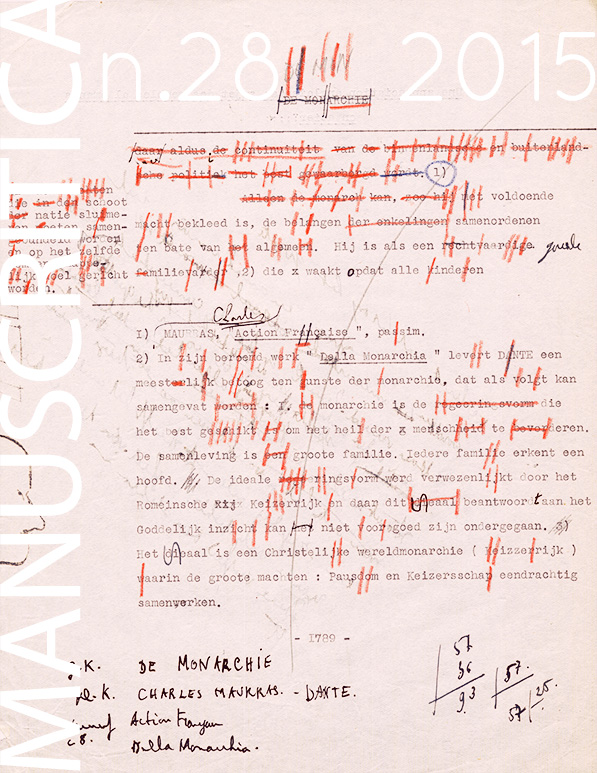The modernist mind extended: Samuel Beckett, his fiction and the extended mind theory
DOI:
https://doi.org/10.11606/issn.2596-2477.i28p74-87Palavras-chave:
Extended Mind Theory, Samuel Beckett, Writing processResumo
This paper presents an on-going PhD project that is part of the effort to reassess the alleged “inward turn” (Kahler, 1973) in modernist literature and place modernist fictional minds within their fictional environments. Borrowed from the domain of cognitive science, the principle of “active externalism” in general and the Extended Mind Theory in particular form the theoretical framework of the project. The practical component draws on the work of the Late Modernist Samuel Beckett and examines (1) the interactive cognitive relationship between the author and the material output of his work at various stages of the writing process (by means of genetic manuscript analysis), and (2) the way Beckett’s fictional characters interact with their environment. The purpose of the article is thus twofold: on the one hand, it demonstrates in a nutshell that cognitive processes involved in the production of narratives can be extended to include extracranial objects. In a separate line of enquiry, Beckett’s fictional minds are shown to be firmly embedded in their narrative contexts (contrary to the popular belief in the hegemony of introspection in modernist narratives), as several examples from Beckett’s (published) texts will demonstrate how fictional minds, too, extend beyond skin and skull.
Downloads
Downloads
Publicado
Edição
Seção
Licença
Copyright (c) 2015 Olga Beloborodova

Este trabalho está licenciado sob uma licença Creative Commons Attribution 4.0 International License.













